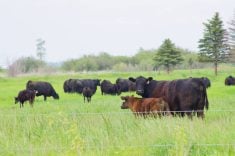Without private investment, it is unlikely many packing plant proposals will get the money they need to get off the ground.
“Private investors are the biggest pool of investment capital for these kinds of ventures. This is typically not an area where the banks will get involved,” said Keith Jones, chief executive officer of AVAC, an Alberta venture capital company. AVAC finances agricultural research and technology projects, but does not provide money to build structures or buy equipment.
Traditional lenders often see a packing plant as risky business that could take 10-15 years to show a return. That calls for the patience of private investors.
Read Also

House ag committee to undertake several studies
The House of Commons standing agriculture committee has set its agenda for the coming months. Members began the fall sitting with a two-hour update on international trade
“Private investment representing at least 40 or 50 percent of the total cost of getting the project up and running has to be raised,” Jones said.
It is easier to find money if the proposal provides a strong business model and management team, accompanied by a good intellectual property concept, brand proposal or some other form of proprietary advantage.
Sometimes success breeds success.
The Ranchers Beef plant being built near Calgary was able to attract money because the Price family of Acme, Alta., was involved. Under the name Sunterra Meats, the family already owns and operates pork and lamb facilities as well as the grocery chain Sunterra Markets in Calgary and Edmonton.
“If the investors have confidence that the people behind the deal understand the business and have some track record at getting this kind of business to the point where it is economically successful, they are more likely to put their money in it,” Jones said.
A common complaint is the reluctance of governments to put up money. However, taxpayers expect a return on investment and the current weight of opinion is that government should not invest in private business.
Another problem may be the independent nature of beef producers. Jones suggested groups proposing plants should have co-operated more, merging to build a few successful projects rather than proposing an array of projects that may never turn sod.
“There has been a great resistance to some of these various groups who are talking about putting these projects together to actually work together to get their projects off the ground jointly, or to pick one project to roll up their sleeves and get behind the wheel and push forward.”
Two projects at different stages of construction understand the problem of raising money.
Rancher’s Own Meat Processors west of Edmonton could be operating next year, said board member Stan Schellenberger of Spruce Grove.
The plans are done, building and health permits are in place and the land has been bought at Acheson for an 800-head-per-day cow and bull plant. The proposal stalled when the major lender pulled out this spring.
“We lost one of our major banks but we are now working with a new one,” he said June 28.
“There is no bank prepared to take any risk on a packing plant.”
About 700 members bought shares at $5,000 each in the new generation co-op. It also allowed investors to commit slaughter cattle as part of the investment. The deal includes a partner from the Vermilion area that owns shares in the equivalent of 400 head.
This group got no government help. Schellenberger worries if taxpayer dollars are involved, the industry would be overbuilt.
“The more help they give, the more packing plants would get built and we would run each other out of business,” he said.
However, the Northwest Cattlemen Alliance based in Lethbridge is disappointed the federal and provincial governments have not provided financing.
“They talk the talk but they don’t walk the walk,” said board member Doug Munton.
“The story from both ends of the country is that we need added packer capacity. They seem content on believing the story that Cargill and IBP will provide this,” he said.
Cargill Foods at High River and Tyson Foods at Brooks undertook considerable expansion, but there is still a need for more competition in the marketplace, Munton said.
The Lethbridge concept is a new generation co-op that would build a 2,000 head per day plant for youthful animals, at a cost of $96 million.
The proposal is still looking for a $25 million producer investment as well as private money. Negotiations are ongoing with Alberta Financial Services Corp. for a $10 million loan.

















